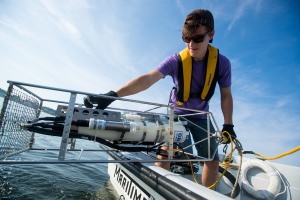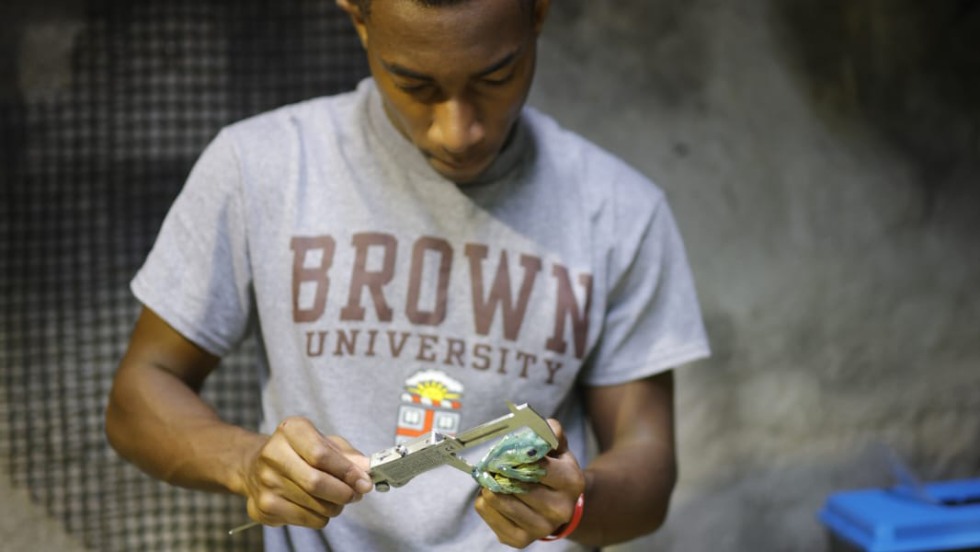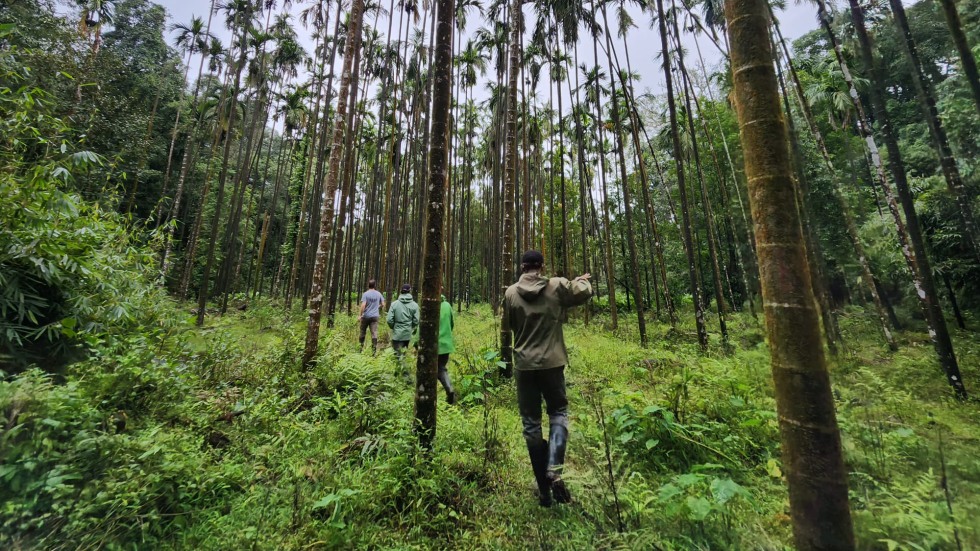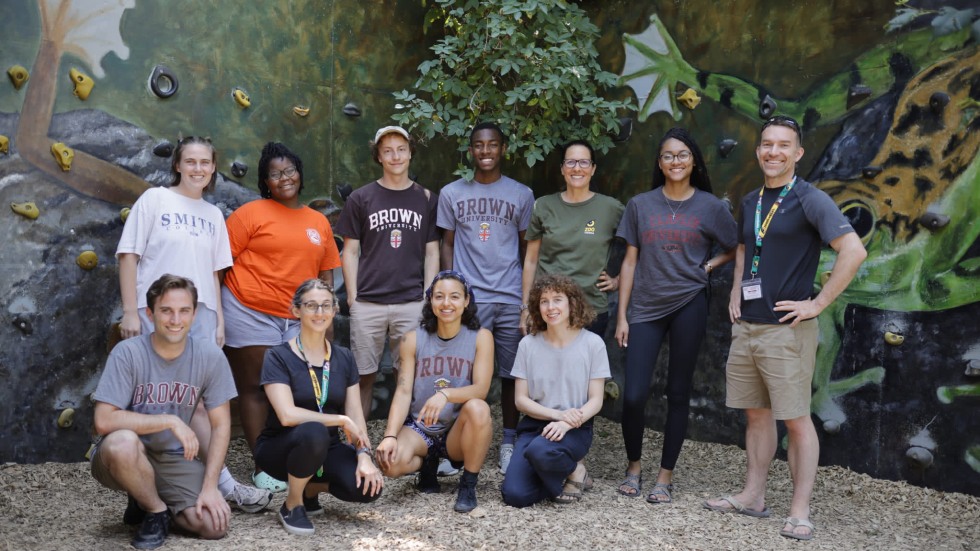PROVIDENCE, R.I. [Brown University] — The students were warned. While the summer research opportunity offered incredible hands-on experiences globally, it wouldn’t be right for everyone. The days in the lab in Vienna would be long. The days (and nights) in the rainforest in India would be wet and muddy. They’d be researching frogs, but they might also encounter leeches or poisonous snakes.
For Kyle Paul, a junior biology concentrator on the pre-medicine track at Brown, it sounded perfect. And the experience exceeded his expectations in every way.
Paul spent Summer 2023 studying frogs: four weeks at the Schönbrunn Zoo in Austria and two weeks at a field research station in the Western Ghats region of India. Paul was one of six students selected to participate in the Brown/Smith International Research Program for Students, which provides a unique opportunity for undergraduates to conduct international research in animal behavior and physiology. The program is directed by Matthew Fuxjager, an associate professor of ecology, evolution and organismal biology at Brown who studies the physiological and evolutionary bases of complex animal behavior.
Paul, who grew up near Chicago, had never done field research, wasn’t especially outdoorsy and had no familiarity with frogs beyond the ones he’d dissected in anatomy class. But he was eager for a research experience that would take him out of the classroom and contrast with his pre-med studies.
“I wanted my first step into research at Brown to be an intense and all-encompassing experience, because I wanted to know if research was something that I'd be interested in doing in the future,” Paul said. “This opportunity with Professor Fuxjager was something that seemed really appealing as a way to get away from the comfort zone, and to push myself to use my academic skills that I built over the last two years at the school in a whole new setting.”
It was at the Vienna zoo that Paul first encountered the frogs. He was assigned to work with three species native to Borneo, and his job was to assess their visual acuity. He’d do this by placing the frogs in a clear cylinder that resembles a tilt-a-whirl ride. The frogs would stay put, but the screen around them would whirl by at different speeds. Paul would record and measure and how well the frogs were able to visually track the markings on the moving screen.
“We'll be able to find patterns in how certain species of frogs are able to respond to different levels of stimuli in their environment,” Paul said. “There isn’t much information available about how well most species of frogs can see and respond to visual signals around them.”
But before Paul could get the frogs into the cylinder, he had to catch them. The tiny amphibians didn’t want to leave the comfort of their home terrarium, so they’d respond to his advances by hopping away erratically. Paul said he appreciated the chance to work with such active lab species, despite their lack of cooperation.
“The experience has been really eye-opening, because I've had to learn how the different species of frogs interpret human touch,” Paul said. “It’s been cool to discover how to interact with the frogs and make sure they don't feel overwhelmed or unsafe.”
Keeping calm and carrying on with research
For the trip to India, the team was stationed at a biology research center in the heart of the rainforest region of the country. The goal was to compare and contrast the ways that frog species responded to visual stimuli that tell a frog when it has encountered a predator or prey, to ultimately determine evolutionary similarities.
To conduct their studies, the researchers trekked to nearby streams and looked for two species of foot-flagging frogs. They’d bring the frogs back to the center and conduct vision experiments before returning the amphibians to their natural habitat.



